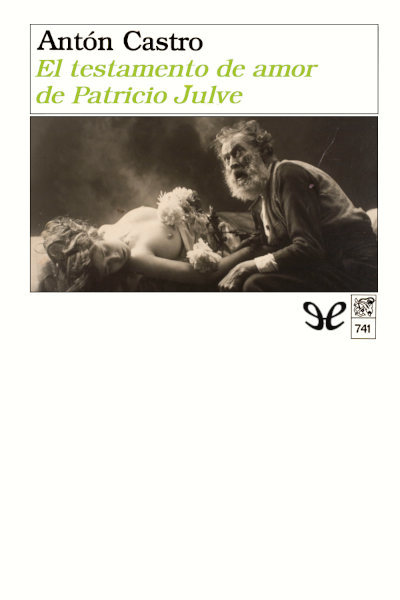oleebook.com
Fábulas de Fedro
de Fedro - Género: Relato
Sinopsis
Aunque los nombres de Fedro y Aviano han conocido peor fortuna que el de Esopo, sus fábulas han servido de modelo tanto a los fabulistas posteriores, como a escritores de otros géneros que las incluyen en sus obras.
Género abierto, popular, folclórico y de difícil definición, la fábula ha estado presente en casi todas las culturas. En muchos pueblos la tradición fabulística se organizaba en torno a un supuesto autor legendario o semilegendario, como Esopo en Grecia (publicado también en Biblioteca Clásica Gredos). En Roma, sin embargo, encontramos ya a autores reales de cuya existencia efectiva no cabe duda.
El primero de ellos es Fedro (15 a.?C.-c. 55 d.?C.), cuyo centenar de leyendas y fábulas ha llegado hasta nosotros dividido en cinco libros y un apéndice (con treinta y dos fabulas más, probablemente también del autor). Fedro, que califica sus fábulas de «esópicas», no es sin embargo un mero imitador de Esopo, pues se separa de éste en el estilo y en los temas, y muchos de sus relatos son originales. Hijo expósito, esclavo manumitido por Augusto, Fedro se refiere muy a menudo a las injusticias sociales. Sus fábulas tienen el doble propósito de aconsejar y entretener, y suelen ser de tono grave; algunas de ellas son muy conocidas aún hoy, como «El lobo y el cordero» y «La zorra y las uvas verdes».
Colecciones Biblioteca Clásica Gredos (343)
Descargar
Descargar Fábulas ePub GratisLibros Recomendados - Relacionados
Reseñas Varias sobre este libro
Instruire et amuser, les deux fins des fables sont ici atteintes par Phèdre qui, esclave comme son digne prédécesseur Ésope, offre à la langue de Virgile de quoi tenir tête à celle d'Homère. Le style est très serré, incisif. On retrouve des thèmes Ésopiques mais aussi des histoires originales contemporaines de l'Empire. On notera que la morale issue de ces histoires cherchent à inspirer la prudence et le détachement face à un monde dangereux, violent, en proie aux retournements de fortune les plus brutaux. Il offre au lecteur un très agréable moment de détente.antiquité contes fiction ...more7 s Alex PlerAuthor 6 books252
Fábulas con moralejas para otros tiempos. Leídas hoy en día sorprende esa mezcla de ingenuidad, crueldad y candidez para intentar explicar el mundo. Hemos cambiado pero muchos comportamientos que perduran.4 s Gauss74439 82
Le favole si imparano solo a scuola? Ebbene sì, lo ammetto. sono un feticista bibliofilo.
L'argomento forse principale che mi ha fatto accostare a questo libro non è tanto l'opera (di per sè comunque stuzzicante) ma l'edizione. Ho imparato a conoscere la Nuova Universale Einaudi in biblioteca, e ho capito subito che era stato un prog ... (continua)
Ebbene sì, lo ammetto. sono un feticista bibliofilo.
L'argomento forse principale che mi ha fatto accostare a questo libro non è tanto l'opera (di per sè comunque stuzzicante) ma l'edizione. Ho imparato a conoscere la Nuova Universale Einaudi in biblioteca, e ho capito subito che era stato un progetto assai ambizioso: sia per la caratura delle opere scelte che per la realizzazione dei volumi. Parliamo di un oggetto prezioso a livello mentale e materiale: tutto è ricco e accattivante, dal progetto grafico ai materiali utilizzati.
Ovviamente non può che avermi fatto piacere scoprire che dopo molti anni il progetto sia ripartito, tra l'altro prevedendo una interessantissima edizione riveduta e ritradotta dell'Eneide di Virgilio: ma visto il non trascurabile aspetto economico (sono libri che da nuovi costano giustamente un botto) ho deciso di partire in una sorta di caccia al tesoro per mettere le mani sui libri introvabili, magari a prezzo più basso perchè non in ottime condizioni.
Veniamo alle favole di Fedro. Il genere letterario della favola mi stuzzicava, perhè al di la di quello che potrebbe sembrare mi sembra davvero uno dei più difficili: occorre essere immediati, elementari, con un immaginario intensissimo ed allo stesso tempo veicolare una morale semplice ma significativa.
Sono sicuro che il liberto romano ci sia riuscito vista la fama che i suoi animaletti hanno riscosso nel corso dei secoli, ma appunto l'immaginario mi sembra per così dire ammuffito. Sono poesie che sanno di vecchio, che nella loro semplicità sono apprezzabili ma fanno nascere un senso di compiacenza, come quando si dà una carezza al vecchio nonno.
la fama delle favole di Fedro è tale che mi è capitato all'improvviso di imbattermi nella versione originale di un racconto che avevo già conosciuto per pura tradizione popolare. E' stata una bella sensazione.
Invece non mi è piaciuta la lunghissima introduzione: invece che guidare al piacere della lettura delle favole, le pagine introduttive hanno assunto subito un tono fortemente accademico, direi quasi universitario. E' un fastidioso neo che ho incontrato spesso nelle opere letterarie pubblicate negli anni sessanta, ed ho paura che fosse una tendenza generale di quegli anni l'affrontare l'opera letteraria con eccessiva cattedraticità.
E' una cosa brutta in generale, ma se stiamo parlando di favole esopiche davvero non ci sta per niente. Questo, oltre all'intenso sapore di vecchio che emana da questi testi millenari, contribuisce a dissipare in parte l'intensità che i componimenti devono avere, e conseguentemente abbassa il valore dell'opera.
Sono comunque intenzionato ad approfondire il genere favolistico, soprattutto nella produzione di terre lontane: il folklore di alltri popoli ha molto da raccontare attraverso le sue favole.
Un saluto quindi a Volpe, Cicogna, Lupo, Cane, Sparviero, Rana, Serpente, Leone e tutti i loro amici. Ci vediamo la prossima volta.
nue4 s Illiterate2,152 39
The Roman Aesop? Yes, but Phaedrus writes verse and hes more didactic and more ready to stray from animals.3 s Andre Piucci467 26
An Athenian seeing Aesop in a crowd of boys at play with nuts, stopped and laughed at him for a madman. As soon as the Sage,a laughter at others rather than one to be laughed at,perceived this, he placed an unstrung bow in the middle of the road: Hark you, wise man, said he, unriddle what I have done. The people gather round. The man torments his invention a long time, but cannot make out the reason of the proposed question. At last he gives up. Upon this, the victorious Philosopher says: You will soon break the bow, if you always keep it bent; but if you loosen it, it will be fit for use when you want it. Thus ought recreation sometimes to be given to the mind, that it may return to you better fitted for thought.2 s Diana B?dele11 1 follower
I really Phaedrus, maybe because he is the maker of poetic fables. He has the merit of having built the fable as a literary genre in Rome. I think I d the fables in the appendix the most, the ones copied by Bishop Perotti and discovered only in the nineteenth century. They are much more full of mythology and teachings even if Perotti removed their morals.2 s Duccio Di Prima53 3
Favole dalla morale amara che poco si addice al nostro tempo. Tuttavia questo inconveniente è comune a gran parte della letteratura antica, e perciò non se ne può parlare come un difetto. Ogni tanto ci si imbatte in qualche perla, come la favola di Simonide; per non parlare della bellezza dei versi latini.1 Marc Giné Pedrocchi60
Més coses de romans. Però molt actual...1 Louiza202 5
Enjoyable and didactic. Phaedrus was a Roman fabulist and ex-slave of emperor Augustus who eventually granted him his freedom. Phaedrus based his fables on the fables of Aesop. In fact, he mentions Aesop a couple times when he addresses the reader giving Aesop credit for the inspiration, while at the same time proclaims his independence as a writer.
Indeed, the stories might resemble some closer than others those of Aesop's, but the differences are clear I think, and also the writing style is different. Phaedrus wrote the fables in Latin and in verse. According to the book's introduction, "Phaedrus [...was] the first to adapt a whole Greek genre to Latin literature."
What surprised me were the several fables where the moral of the story ended up being that the strong or wicked wins over the weak and good-doer, even a fable where the liars are rewarded but the truth teller is punished.
Of course, we all want a good ending in a fable and a lesson that assures us of the rewards of doing good, being honest, and humble. However, this is not always the case in real life and I think Phaedrus in these fables was trying to show the reality of life as a warning that in life the outcome is not always the right outcome, and often the righteous or weak will be punished while the wicked or stronger will prevail. The book's introduction writes about this: "Phaedrus' attitude to life is one of dignified and humorous pessimism." I would prefer to call it realism; even if it seems a hard lesson to be warned or learn about it in a fable, it is also a necessary one, just any other lesson.
If you fables, I certainly recommend this book, but if you haven't read Aesop's fables, I would recommend that you start with Aesop first. I enjoyed this, but I still prefer Aesop more.
*(I had to get the real paperback -- the edition on the picture, but in beige color-- because the language of the kindle's edition was terrible and the sentences quite awkward at some parts).my-home-library read-2021 Jefferson Fortner236 2
This was a fun, light read. Phaedrus was a 1st century, AD, Latin poet who translated many of Aesop's fables into Latin, and then added other stories he was familiar with, some of which dealt with the first two emperors of Rome, Augustus and Tiberias. I was already familiar with Aesop material, but not all of it, and I did not know the other material at all. A nice casual book to leave lying around and to pick up on impulse to read a few pages and then to move on until the next time. Linda372 3
Aardige fabels in een bij wijlen fantastische vertaling van Johan van Nieuwenhuizen (de vele woordspelingen in 'De bevallende vrouw'!), met prachtige illustraties van J. van Vianen. Deze fabels geven de 'zedenles' aan het eind van het verhaal (epimythion), en eerlijk gezegd had ik de interpretatie soms ook nodig. In deze tijden zijn moralistische verhalen uit de mode, maar er valt best wat te genieten. Andrà?-Florin R?ducanu581
"Fabule" de Fedru
Citit? în 29 martie.
Num?r de pagini: 304.
Acestea au fost unele dintre cele mai pl?cute fabule pe care mi le-a adus via?a în mâini. O construc?ie minunat? a acestor versuri cu tâlc, un minunat sim? moralizator ?i un sim? de observa?ie foarte fin. Lectura acestor fabule este una elementar?.
Nota: 10. An 91610
Outstanding with a lot of insights to show to us that nothing even change in the humanity. Metaphors to show the dark and bright sides of the man. Funny to read leave the sign in the mind and in the fantasy of the reader Eleonora298 62
Favole brevi, in alcuni casi brevissime. A volte ammetto di aver fatto fatica anche a capirne il senso, almeno in due esempi. Non so, non sono molto soddisfatta di questa lettura; chissà se con un'altra traduzione la lettura sarebbe stata tanto diversa._2021 _2022 1_0-classic ...more Serena.. Sery-ously?1,120 222
Vulgare amici nomen, sed rara est fides2009 cartacei Aurora Pesce54 11
Pregando di passare la versione propedeutica di latino Elena631 1 follower
Belle e istruttive, non solo per i bambini.letto J-P Virtanen29
Antaisin 3.5 tähetä. Monet tarinoista olivat hauskoja ja saivat ajattelemaan, mutta toiset olivat hämärämpiä. Saattaa olla tietenkin käyttäjän vika. Berenice23
Una raccolta di brevi favolette, leggere ma con un'importante morale. Bellissimeclassici-greci-e-latini Ordinary Alien4 1 follower
Devorares intra diem. Brevis et amoenus.1-500 fable latin-literature Ilary280 3
Le favole sono molto interessanti, soprattutto se contestualizzate nel periodo in cui sono state composte. Il problema è la brevità, che spesso le rende più simili a proverbi che a racconti22 grecia Lulu1,753 Read
Animal fables are said to have originated with Aesop, a semilegendary Samian slave, but the earliest surviving record of the fables comes from the Latin poet Phaedrus, who introduced the new genre to Latin literature. This verse translation of The Fables is the first in English in more than two hundred years. In addition to the familiar animal fables, about a quarter of the book includes such diverse material as prologues and epilogues, historical anecdotes, short stories, enlarged proverbs and sayings, comic episodes and folk wisdom, and many incidental glimpses of Greek and Roman life in the classical period. The Fables also sheds light on the personal history of Phaedrus, who seems to have been an educated slave, eventually granted his freedom by the emperor Augustus. Phaedrus' style is lively, clean, and sparse, though not at the cost of all detail and elaboration. It serves well as a vehicle for his two avowed purposes-to entertain and to give wise counsel for the conduct of life. all fabulists, Phaedrus was a moralist, albeit on a modest and popular level. An excellent introduction by P. F. Widdows provides information about Phaedrus, the history of The Fables, the metric style of the original and of this translation, and something of the place of these fables in Western folklore. The translation is done in a free version of Anglo-Saxon alliterative verse, a form used by W. H. Auden and chosen here to match the popular tone of Phaedrus' Latin verse.narration-of-ancient-fictionalities João 148 48
Too much anthropomorphism for me, and bashing animals (poor snakes, wolves, foxes, etc. they are always the bad guys!). Fables are still interesting for their structural repetition throughout space and time ( many other aspects of folklore and culture). Phaedrus published 5 books based on Aesop's style, and he was the first to do so in Latin. These 5 books (all short in length) are gathered nowadays under one book. I didn't feel wiser after reading this, even though some of them are really good and funny, also because of the contextual jokes made referring to Roman sociocultural aspects (the translator notes help a lot and they are the most interesting part of the work IMHO), but the 'message' behind them was, unfortunately, never new for me.latin-literature mythology-or-folklore short-stories-collection OdileAuthor 5 books27
A nice modern Dutch translation of these classic (Aesopian) fables. The modern style of the translation gives the fables some of the contemporary flair that Phaedrus' originals must have had at the time.
Many of the fables are recognisable and have become classics, but I was not overwhelmed by any great wisdom contained in them. Most of the fables contain witticism and critical observations of human nature and society, but I was never surprised by any particularly deep or truly insightful comments.animal-tales-fables folklore-fairytales roman-latin Auntie Pam328 41
Proprio come dice lo stesso Fedro queste favole si assomiglaino molto a quelle di Esopo. Sono brevi e ricche di morale, ma solo alcune mi hanno proprio divertito.2012 for-much-deliberation ...2,677
Fables of Phaedrus. The morals of which can still be applied to some aspects of life today...classics philosophy Suhail250 5
Interessant om te zien hoe anders het wereldbeeld was in die tijden en hoe sommige verhalen dan toch herkenbaar zijn. classics Aritra Sen29 6
I short stories. They end up quickly. Barbara740 4
Definirle favole nel senso che oggi noi diamo del termine è estremamente riduttivo, si tratta più che altro di brevi racconti altamente educativi.
Vincent Russo225 32
Autor del comentario:
=================================











